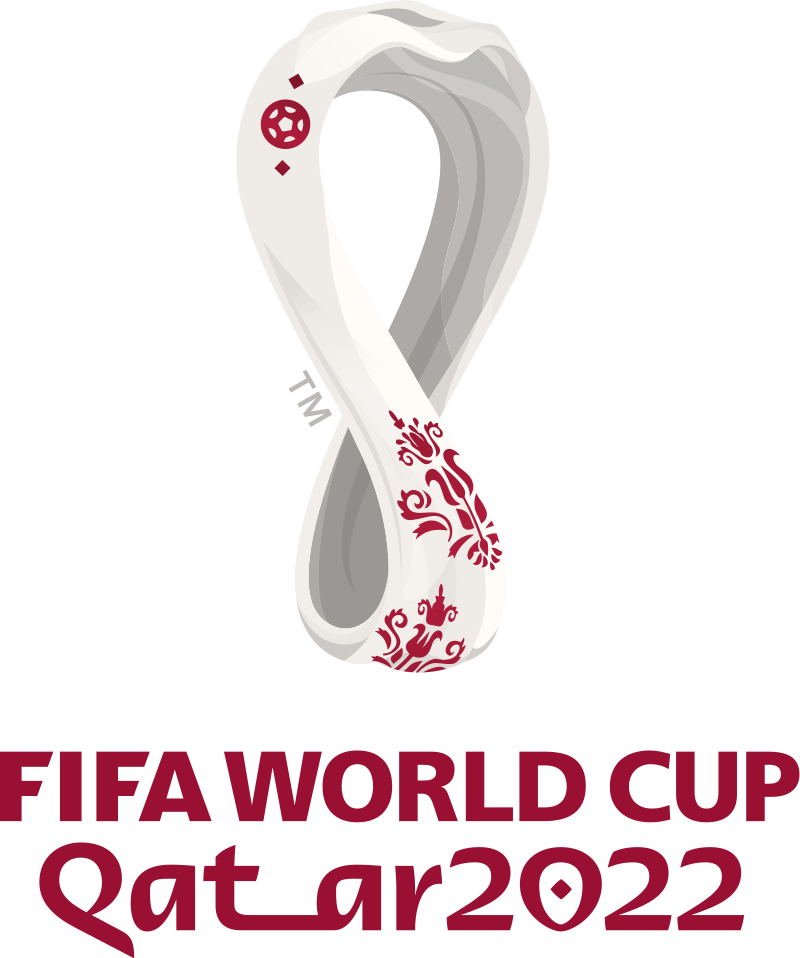Excitement is already building for the FIFA World Cup 2026, with the news that it will feature a groundbreaking 48 teams format. This expansion represents a significant shift in the landscape of the world’s most prestigious football tournament. Fans and experts alike are eager to see how this change will impact the competition and which new teams will rise to the occasion. The 48 teams format promises more diversity, increased opportunities for emerging football nations, and heightened global interest. In this blog, we will delve into the details of this transformative format, discussing what it means for the future of the FIFA World Cup and what fans need to know as we approach this historic event.
Introduction to the FIFA World Cup 2026

The FIFA World Cup 2026 is set to make history with an expanded format featuring 48 teams. This edition of the prestigious tournament is highly anticipated and promises to be full of excitement and thrills for football fans around the globe.
Hosting Countries and Venues
The 2026 FIFA World Cup will be hosted across multiple countries in North America, including the United States, Canada, and Mexico. The selection of multiple host nations adds a unique flavor to the tournament.
Qualification Process
The qualification process for the FIFA World Cup 2026 will see 48 teams competing for a spot in the tournament. Both traditional footballing powerhouses and emerging nations will have the opportunity to showcase their talents on the world stage.
Evolution of the FIFA World Cup Format
The FIFA World Cup has undergone several format changes over the years to keep up with the growing popularity of the tournament. In the latest development, the FIFA World Cup 2026 will feature 48 teams, a significant increase from previous editions.
Introduction of 48 Teams Format
For FIFA World Cup 2026, the format will expand to accommodate 48 teams, allowing more nations to participate and compete on the global stage. This change aims to promote inclusivity and give more opportunities to countries from around the world.
Impact on Tournament Structure
The expansion to 48 teams will lead to a revamped tournament structure with an increased number of matches and a longer competition duration. This change will provide fans with more games to enjoy and create new opportunities for emerging football nations.
- Increased diversity in participating teams
- Challenges in logistics and scheduling
- Enhanced global representation

Expansion to 48 Teams
In the FIFA World Cup 2026, the format will see an expansion to 48 teams from the previous 32 teams. This change aims to make the tournament more inclusive and give more nations the opportunity to participate in the world’s most prestigious football event.
New Qualification Structure
The expanded format will lead to a new qualification structure, providing more teams from different regions a chance to compete on the global stage. This will not only increase the diversity of the tournament but also elevate the level of competition.
Increased Global Representation
With 48 teams participating, the FIFA World Cup 2026 will showcase increased global representation, with nations from all continents vying for glory. This expansion will further promote the growth of football worldwide and create new opportunities for emerging footballing nations.
Benefits of the 48 Teams Format
The expansion to a 48-team format for the FIFA World Cup 2026 brings numerous benefits to the tournament.
Increased Global Participation
The inclusion of more teams allows for greater representation from countries across the world, promoting inclusivity and diversity in the tournament.
This expanded format gives more nations the opportunity to showcase their talent on the world stage, making the FIFA World Cup even more engaging.
Enhanced Competition and Excitement
With additional teams participating, the competition becomes more intense, leading to thrilling matches and unpredictable outcomes.
- Stronger Teams: Top teams face tougher challenges
- Underdog Stories: Smaller teams have a chance to shine

Potential Challenges and Criticisms
As the FIFA World Cup 2026 transitions to a 48 teams format, several potential challenges and criticisms may arise. One major concern could be the dilution of competitiveness due to the increased number of teams participating.
Inequality in Matchups
The expansion to 48 teams may lead to more uneven matchups, potentially resulting in some one-sided games. This could diminish the overall excitement and quality of the competition.
Logistical Challenges
With more teams involved, logistical challenges such as scheduling matches, accommodating teams, and managing resources may present significant hurdles.
- Travel arrangements for teams
- Increased demand for accommodations
- Security concerns at multiple venues
Qualification Process for Participating Teams
The qualification process for the FIFA World Cup 2026 involving 48 teams is a rigorous and competitive journey for national teams worldwide.
Continental Qualification Tournaments
Nations will compete in continental tournaments to secure their slots in the World Cup, with each region allocated a certain number of spots.
Teams from Europe, Asia, Africa, North America, South America, and Oceania will battle it out for qualification.
Intercontinental Playoffs
Teams that narrowly miss out on direct qualification will have a chance to compete in intercontinental playoffs to claim remaining spots.
- The playoffs will feature exciting matchups between teams from different regions.
- The competitiveness of the playoffs adds an extra layer of drama to the qualification process.
Impact on Host Countries and Venues
Hosting the FIFA World Cup 2026 with 48 teams will have a significant impact on the host countries and venues. The influx of fans, athletes, and media will boost local economies and promote tourism.
Infrastructure Development
The host countries will invest in upgrading infrastructure such as stadiums, transportation, and accommodations to meet the demands of such a large-scale event. This will leave a lasting legacy for the communities.
Additionally, renovations to existing venues or the construction of new state-of-the-art stadiums will enhance the overall experience for both spectators and participants in FIFA World Cup 2026.
Economic Benefits
The World Cup will bring in a surge of revenue through ticket sales, merchandising, and sponsorships. Local businesses will also thrive from increased consumer spending during the tournament.
- This economic boost will create job opportunities and stimulate growth in the host countries.
Player and Fan Experience
In the FIFA World Cup 2026 with 48 teams format, both players and fans can expect an unparalleled experience filled with excitement and passion.
Enhanced Quality of Matches
With more teams participating, fans can witness a diverse range of playing styles, strategies, and skill levels, making each match thrilling and unpredictable.
Players will face tougher competition, leading to intense gameplay that showcases the best talents from around the world.
Global Fan Engagement
The expanded format allows for greater representation from different countries, fostering a sense of unity and pride among fans worldwide.
Fans can expect an electric atmosphere both in stadiums and through virtual platforms, as excitement for the tournament reaches new heights.
Technological Innovations and Enhancements
In the FIFA World Cup 2026 48 teams format, technological innovations and enhancements play a crucial role in enhancing the viewing experience for fans worldwide.
Virtual Reality (VR) Experience
The utilization of VR technology allows fans to immerse themselves in the live match action as if they were present in the stadium experiencing the thrill and excitement firsthand.
Augmented Reality (AR) Applications
AR applications provide fans with interactive experiences such as player stats, real-time commentary, and 3D visualizations of key match moments, enhancing their engagement with the tournament.
Frequently Asked Questions
-
- What is the FIFA World Cup 2026 48 Teams Format?
- The FIFA World Cup 2026 will feature a format where 48 teams from around the world will compete in the tournament.
-
- How is the FIFA World Cup 2026 format different from previous editions?
- The FIFA World Cup 2026 will see an increase in the number of participating teams from 32 to 48, making it the first World Cup with 48 teams.
-
- How will the 48 teams be divided in the FIFA World Cup 2026?
- The 48 teams in the FIFA World Cup 2026 will be divided into 16 groups of 3 teams each, with the top 2 teams from each group advancing to the knockout stage.
-
- What are the benefits of having a 48 Teams Format in the FIFA World Cup 2026?
- The 48 Teams Format in the FIFA World Cup 2026 allows for more countries to participate, increasing diversity and opportunities for teams from different regions to showcase their talent on the world stage.
-
- How will the scheduling work for the FIFA World Cup 2026 with 48 teams?
- The scheduling for the FIFA World Cup 2026 with 48 teams will be adjusted to accommodate the increased number of matches, ensuring a balanced and exciting tournament experience for teams and fans.
Unlocking the Excitement: Embracing the FIFA World Cup 2026 48 Teams Format
As we conclude this insightful journey into the FIFA World Cup 2026 48 Teams Format, it is evident that the tournament’s expansion brings a new era of anticipation and thrill for football enthusiasts worldwide. The increased number of participating teams not only promotes inclusivity but also fosters cultural exchange on a global stage. The format’s revamp signifies FIFA’s commitment to evolving the game while honoring its rich traditions. Fans can look forward to a more intense and varied competition, showcasing the incredible talent from diverse footballing nations. From qualification intricacies to match schedules, this innovative format promises an unforgettable tournament experience for players and spectators alike.

